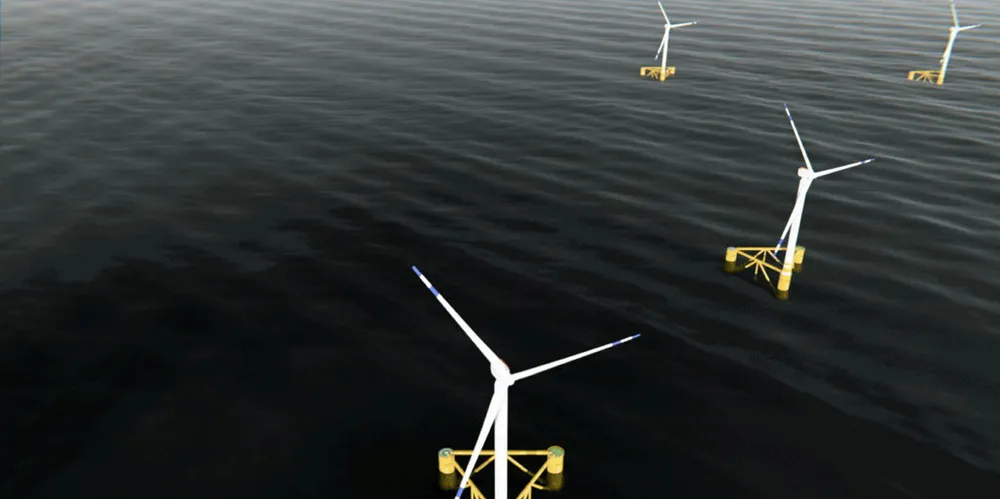Multi-tasking Odfjell floating wind foundation design gets key stamp of approval from DNV
Innovative DeepSea Semi awarded so-called 'scantling approval', as Norwegian contractor eyes projects in home market as well as Celtic Sea and Scottish waters

An innovative Norwegian floating wind platform design engineered for use in stand-alone floating wind farms as well as electrification of offshore oil & gas installations has been given a key stamp of approval by DNV as the concept heads for commercialisation.
“Class approval of the Deepsea Semi with the selected wind turbine will mark another important milestone for us,” said Per Lund, CEO of Odfjell Oceanwind, the floating wind technology spin-off of parent offshore oil drilling contractor Odfjell.
“We continue building on the long-term relationship with DNV which we plan to extend also through full classification and certification of floating wind units for wind [farm] applications as well as our own fleet of mobile offshore wind units (MOWUs) for off-grid application.
“We now have a product readily available and very well suited for near-term oil & gas electrification initiatives, innovation parks in North-West Europe as well as projects like Utsira Nord [off Norway], Celtic Sea and Scotwind [off Scotland], including locations West of Shetland.”
Erik Henriksen, director of offshore classification business at DNV, said: “Since the completion of the approval in principle earlier this year the concept has matured and the main scantling approval is progressing well.”
The Deepsea Semi is designed for low cost, industrial mass-production and dimensioned turbine as large as 15MW in water depths ranging from 60-1,300 meters.
“Application of MOWUs for electrifying offshore oil & gas installations have a significant potential for the decarbonisation of the industry, complementing electrification with power from shore,” said Lund, who noted the units could be brought into operation “around two years from order”.
Scantling approval, which follows-on from a design receiving its ‘approval in principle’, runs the rule over a platform’s load-bearing structures base on steel plate thickness, stiffener and girder dimensions, as well as grade of materials.